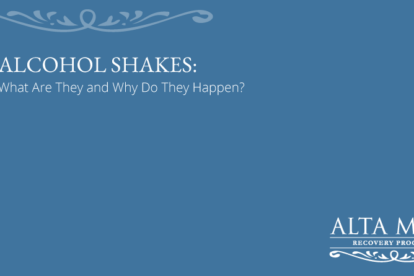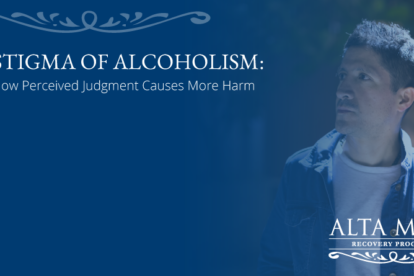
Consequences of a DUI Arrest
Driving under the influence of alcohol or drugs (DUI) generally means operating a vehicle with a blood alcohol content (BAC) above a limit set by the state, usually .08 percent. About two thirds of American states also have DUI proscriptions that include the presence of any prohibited substance in the body. Per the Centers for Disease Control (CDC), approximately 121 million people annually drive while under the influence at least once during a given year. Both age and addiction can be risk factors for DUI. Driving under the influence of alcohol or drugs can be very dangerous, and getting a DUI can have far-reaching consequences and may affect aspects of life that weren’t previously considered.
Each state, and the District of Columbia, have laws that deal with operating a vehicle with alcohol present in the body. “Per Se” laws establish BAC limits, usually .08 percent, that if reached or surpassed do not require further evidence to prove impairment. Though all the states have Per Se alcohol rules, only about a third of the states have adopted Per Se regulations related to drugs. In these states, Per Se laws prohibit the presence of any illicit drugs in the body while driving a vehicle. If any drugs are present in the body no further evidence of impairment is necessary. Other states have set limits for the amount of drugs that may be present in the body while a person is in control of a vehicle.
Because of Per Se laws, being arrested for a DUI can impact a person’s life immediately, whether or not a conviction occurs later. For instance, most states immediately suspend the driver’s license of any person arrested for DUI. A suspended license term can last from 30 days up to one year or more. Even if a conviction does not later result, the license will not be restored until the case has been adjudicated. Meanwhile, alternate transportation is usually needed to get to work, school, appointments, and to run errands related to daily life. Alternate modes of transportation could be difficult to find and may create problems with meeting obligations.
DUI Statistics
- About one third of all fatal vehicle accidents involve impaired driving.
- Of the 121 million people who drive while under the influence each year, 85 percent also self-reported engaging in “binge drinking.”
- Men between the ages of 21-34 and people who live in the Midwest tend to have the highest rates of driving while under the influence of alcohol.
- A 2013 national study also showed that almost 10 million people aged 12 years or older reported having driven while under the influence of an illicit drug during the previous year.
- In 2016, 10,497 people died in alcohol-impaired driving crashes, accounting for 28% of all traffic-related deaths in the United States.
- People who suffer from addiction issues are often more likely to drive impaired and thus face the consequences of a DUI.
- About one third of all DUI conviction cases will result in a subsequent DUI for the motorist.
Because addiction has been closely associated with DUI, particularly multiple DUI arrests and convictions, many courts recommend alcohol addiction treatment as a requirement of conviction and sentencing.
Enhancements, Zero Tolerance, and Implied Consent
Getting arrested for DUI may be a stressful situation to deal with. But some issues could affect a DUI arrest beyond what might be considered a routine charge. Issues known as “enhancements” can increase penalties associated with DUI arrest and charges.
- Extremely high BAC upon DUI arrest can lead to higher fines and increased jail sentences. In most states a BAC of .15 percent is considered extremely high. However, in New Jersey a BAC at or over .10 is considered excessive. Idaho, Massachusetts, and Tennessee require BAC at or over .20 to be deemed extreme, while the remaining 17 states list BACs between .16-.18 as extreme. For people who regularly drink heavily, it is possible to “feel okay,” yet still be well above the legal limit for operating a vehicle. About four alcoholic beverages can put most people over the legal limit of .08 BAC in most states.
- Multiple DUIs also play a role in determining penalties for subsequent DUI arrests and/or convictions. Many courts will impose longer prison sentences and higher fines for people who have multiple DUI convictions, even if one or more of the convictions occurred out of state. The intent is to give harsher penalties to repeat offenders in order to deter people from driving under the influence after their first offense.
- Minors present in the vehicle while a person is driving under the influence, or if the offence occurs in a school zone whether or not minors are present, can also increase jail time, fines, and other penalties. The age of minor varies from state to state. In some states the law may only apply if the minor is under age 12. In other states, minors may be as old as 16 years of age. About half of the 211 children, aged 14 and younger, that were killed in vehicle crashes in 2010 were passengers of an alcohol impaired driver.
- DUI driving while the driver’s license is suspended or revoked tends to show a blatant disregard for the law by driving with a suspended or revoked license in the first place. As a result, penalties are stiffer to reflect the disregard of the law by driving when the individual was prohibited to do so, coupled with the decision to drive under the influence.
- Excessive speed charges can be added to a DUI when the speed limit is exceeded by a specified amount when driving under the influence. For example, driving faster than 20 or 30 miles over the speed limit while impaired may be enough to increase penalties in many states.
All 50 states and the District of Columbia have “Zero Tolerance” laws for people under the age of 21. Since it is already illegal for them to consume alcohol, there is no tolerance for driving while under the influence of an alcoholic beverage. Most states set the BAC limit at .02 percent, but many states make it a criminal offense for anyone under age 21 to drive a vehicle with any detectable amount of alcohol in his or her body. The intent of these laws is not only to discourage underage DUIs, but also underage drinking.
Each state also has Implied Consent laws that make it a crime for refusing to submit to sobriety and chemical testing when stopped by the police for a suspected DUI. When applying for a driver’s license, all potential motorists agree to submit to testing in the event a police officer suspects they have been driving under the influence. While some people believe they can “beat” the DUI charge, simply refusing the testing has repercussions. For example, in most states, the driver’s license is automatically suspended for a period of up to a year. And in the event there are previous DUI charges, the person may face increased fines and jail time simply for refusing the field sobriety or chemical tests.
DUI Unrelated to an Automobile
When most people think about DUI, it is generally associated with driving a car. However, a person can get a DUI while operating other types of motorized vehicles or even a bicycle.
Types of vehicles that are not cars but are covered by DUI laws include:
- Boats
- Motorcycles
- All-Terrain Vehicles (ATV)
- Motorized Scooters (moped) operated on roadways
- Motorized wheelchairs
- Snowmobiles
- Riding lawn mowers, farm/construction equipment
- Golf carts
- Passenger vehicles such as trains and busses or even a horse-drawn carriage
- Airplanes, including small craft, private, or commercial
The laws vary by state and may carry more or lesser penalties depending on the vehicle in question and the circumstances. But the general rule is that if the vehicle is motor operated or has a “drive chain,” DUI laws could be applied.
Criminal, Financial Penalties, and Other Consequences of a DUI
Getting arrested for and convicted of a DUI can affect one’s life in many ways, including those that may not have been considered
Criminal consequences resulting from a DUI arrest and/or conviction can include misdemeanor or felony charges, depending on the circumstances. And depending on the charge, incarceration can include jail time from one to three days up to several years in prison. Subsequent DUI arrests can increase severity of charges and length of incarceration.
Financial consequences can include fines and legal fees ranging from a few thousand dollars up to $30,000 or more in court costs. Insurance rates may also drastically increase. Medical and mental health expenses, and costs to attend mandatory classes and other programs imposed by the court, may also be incurred. If the court imposes any mandatory equipment, like an interlock ignition device to start the vehicle, the cost of installation is the responsibility of the owner.
Other consequences of DUI arrest or conviction could include:
- Loss of insurance policy altogether and inability to obtain a new policy
- Loss of employment for those who drive for a living
- Driver’s license suspension or revocation
- Placement of an interlock ignition device on vehicle (BAC must be below .00-.02 percent for the vehicle to start)
- Lost time associated with attending court proceedings, incarceration, or course and program attendance
- Changes in personal relationships
- Injury or death to self or others
Getting a DUI does not necessarily mean that a person is addicted to drugs or alcohol, but it is a sign to seriously consider alcohol or drug consumption and one’s relationship to both.






